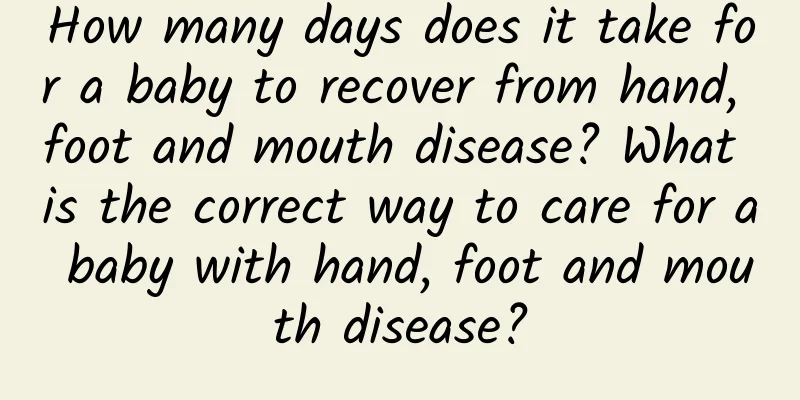Do children need surgery for hernia?

|
Pediatric hernias usually require surgical treatment, which is currently the only way to cure hernias. Due to the risk of incarceration, it is recommended to undergo surgical intervention as soon as possible after a doctor's evaluation to effectively prevent complications. Postoperative care and recovery are also very important and must be strictly followed. 1 Causes and risks of hernia in children Hernias in children are often related to incomplete closure of the abdominal wall or abnormal development. During fetal development, a small passage may form in the groin of some male babies. If the passage is not closed after birth, tissues or organs in the abdominal cavity, such as the intestine, may enter the groin area. This condition is called an indirect inguinal hernia. Stress factors such as premature birth, coughing, constipation, or frequent crying can also increase the risk of hernia. Hernias can usually be seen as lumps in the groin or scrotum area. The lumps may increase due to the baby's activities and may cause incarceration, where the intestines are stuck and blood circulation is blocked. This is a situation that urgently requires surgery. 2Does hernia in children require surgical treatment? For pediatric hernia, in most cases, surgical treatment is required for a complete cure. Non-surgical treatments such as hernia belts cannot effectively solve the problem, and long-term use may bring side effects. Surgical methods are divided into laparoscopic hernia repair and traditional open repair: 1. Laparoscopic surgery: small incision, fast recovery, suitable for children with bilateral hernia; 2. Open surgery: commonly used for complex hernias; 3. Emergency surgery for incarcerated hernia: performed immediately when necessary to avoid serious complications such as intestinal necrosis. The overall risk of surgery is low, but it needs to be performed by experienced doctors in a regular hospital. 3. Postoperative care and other precautions Postoperative care is essential for recovery. After surgery, your baby should generally maintain a light diet and avoid strenuous activities. The wound should also be kept clean to prevent infection. The doctor may prescribe antibiotics and other medications to assist recovery as needed. Generally, the baby's mobility will return to normal 1-2 weeks after surgery, but parents still need to pay attention to any abnormalities in the groin area. If there is a recurrence or other complications, follow-up should be carried out in a timely manner. Surgery is currently the most effective way to treat pediatric hernias, especially considering the possible risk of incarceration, and should be treated as soon as possible. If your baby's hernia is diagnosed, it is recommended to consult a specialist as soon as possible for personalized evaluation and treatment to ensure your baby's healthy growth. |
<<: Why do newborn babies have jaundice?
>>: What medicine is good for children with bacterial tracheitis and cough
Recommend
What are the symptoms of neonatal jaundice? Is yellowing of the whites of the baby’s eyes jaundice?
Neonatal jaundice is a very common disease. Child...
Early symptoms of hand, foot and mouth disease in children, the correct way to deal with hand, foot and mouth disease
What are the early symptoms of hand, foot and mou...
How to treat a one and a half year old baby's night cough?
If a one and a half year old baby coughs at night...
Is sunset yellow harmful to the human body?
Sunset yellow, a food additive, does confuse many...
How many days does it take for the fever of hand, foot and mouth disease to subside? How many days does it take for the fever of hand, foot and mouth disease to subside?
In fact, when it comes to hand, foot and mouth di...
How to treat wind-heat cough in children?
Children with wind-heat cough can take Western me...
Prevention and treatment of Kawasaki disease should not be taken lightly
Have you heard of Kawasaki disease? In fact, this...
What fruits should children eat when they have a cough? What should children pay attention to in their diet when they have a cough?
Cough is familiar to many people. Cough treatment...
Instructions for use of children's cold granules: correct medication to keep your baby away from colds
Xiaoer Ganmao Granules is a Chinese patent medici...
Can acute laryngitis in children be completely cured?
When children suffer from acute laryngitis, they ...
What does the examination for pneumonia in children include?
Getting sick is not scary, what is scary is that ...
Is diarrhea in children serious? What are the dangers of diarrhea in children?
If diarrhea in children is not treated in time, i...
How much does it usually cost to treat ADHD?
The cost of treating children with ADHD will also...
Symptoms of malnutrition in adolescents
Teenagers are the most vulnerable group to malnut...
What are the factors that cause diarrhea in children? Parents should start from three aspects of care
Diarrhea is very common among many children, espe...









